6 winner-take-all stocks for the next decade
This panel was filmed on 9 September 2025.
Trying to find tomorrow's stock winners is a sizeable task.
It's a multi-billion dollar industry on its own and probably one of the reasons you're here reading this.
So what about finding the stock winners of 2035?
Think back to 2015 and the stock you were backing then.
Some have probably performed well. Others may have fallen off the map entirely.
But that was the challenge put to our Livewire Live 2025 global equities panel, comprised of Janus Henderson's Joshua Cummings, Munro Partners Qiao Ma and Plato's Dr David Allen.
As panel host, Livewire's Chris Conway, laid out at the start of the session, market leadership turns over every 20-25 years, and only two companies in the last half century (Microsoft and Shell) have kept their place at the top of the market from one generation to the next.
"Whilst it's hard to fathom," says Conway, "history shows that the likes of Nvidia, Apple, Google, Amazon probably won't be the largest cap companies in 20 years time."
Here are the names our panel had to offer, as well as their strategies for identifying the companies likely to be tomorrow's mega caps.
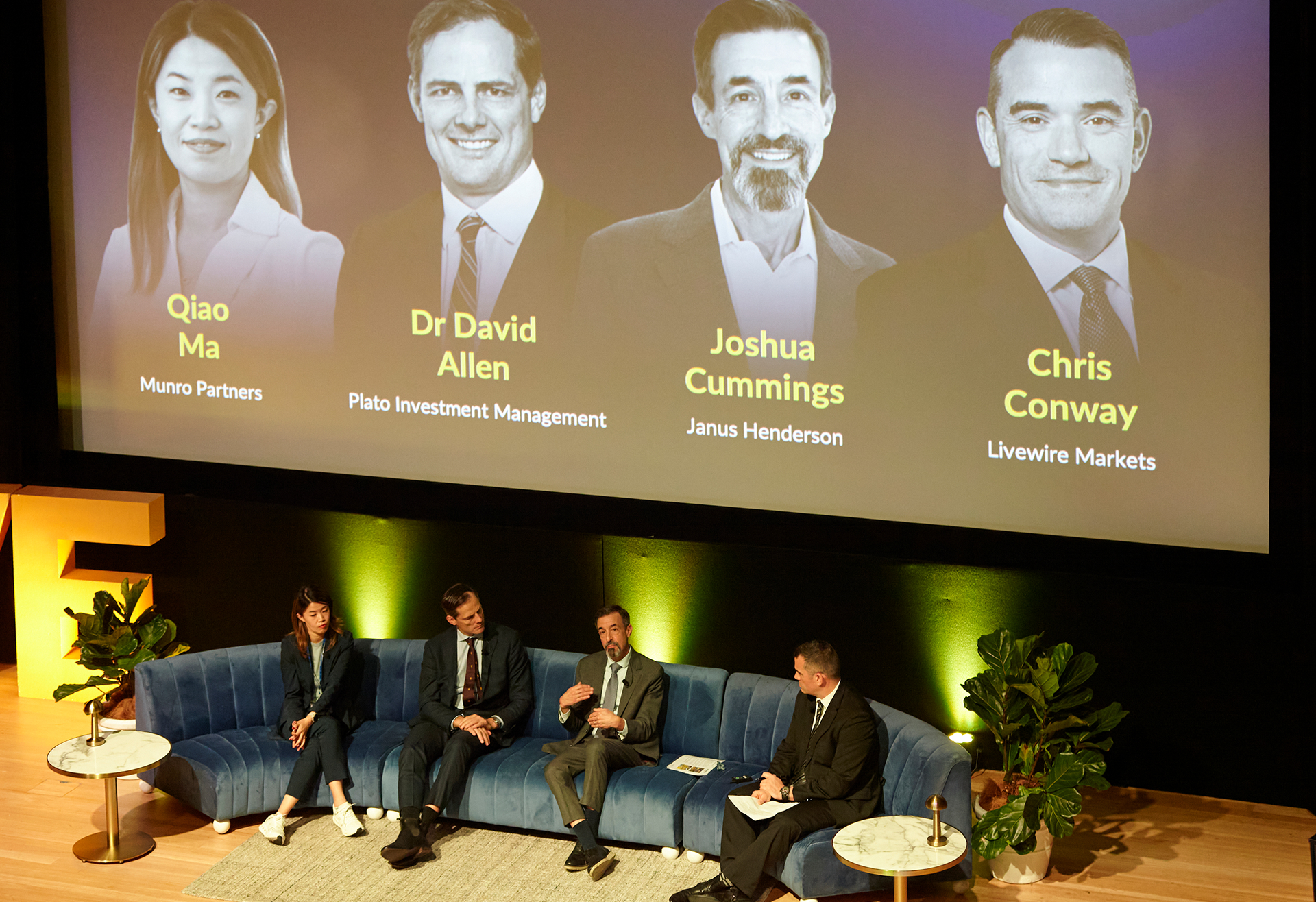
Joshua Cummings (Janus Henderson)
For Josh Cummings, the next decade is going to be one of great change as the AI era kicks off in earnest.
"When we talk about AI, it's not just Nvidia versus AMD, it's who can win in the insurance business, how's it going to change restaurants, how's it going to change content creation and so forth," said Cummings.
He makes the comparison to the internet era and how it disrupted every aspect of society.
"The internet itself - what we were all sort of charging toward - ended up being orders of magnitude more important, more impactful, more pervasive than anyone could have thought in the late nineties. And so I think that that's the right mental model, at least at this point for AI."
It's also going to be a decade where the dominant players look to grow revenues and market share, says Cummings. He uses the example of Amazon and groceries.
"We believe the next 10 years are going to be an absolute blood bath in grocery and we think Amazon's going to create it. And the simple logic here is in the us, Amazon already has every household with any meaningful discretionary spending power as Prime members. They've already got you."
"The growth imperative is they've got to get each household to spend more. What better way to drive spending in a household than to get you to start interacting with the thing you buy most frequently, which is food."
Spotify (NASDAQ: SPOT) is another one that fits this bill. It's on the Amazon trajectory, argues Cummings.
"Spotify to us is now fully and completely demonstrating signals and signs of a long-term winning aggregator in much the same way that Amazon did for us many years ago,."
It's a "wildly profitable" company with dominant market share in a growth industry and could make the jump to mega cap stock in the next 10 years.
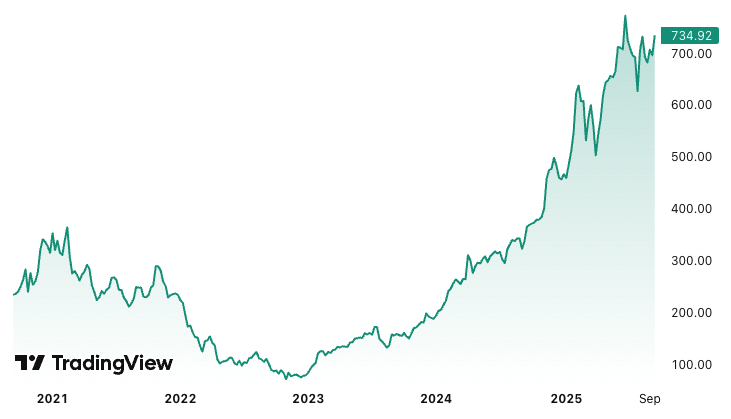
The other name Cummings offers is Progressive Insurance (NYSE: PGR), the second-largest auto insurer in the US.
It's a great example of a well-run company doing things correctly, says Cummings.
"Progressive underwrites better, uses data better and then ploughs that back in. It's this virtuous circle and virtuous flywheel."
It's also a company that has adopted the right approach to implementing AI in a sustainable and sensible manner.
"They're not going to have a year when earnings are up a hundred percent necessarily, or revenues accelerating in a non-linear fashion. But if you can compound free cashflow at 8, 10, 12% a year, year after year in a business like insurance, you start to develop a real flywheel."
"Nothing really gets me more excited than a really boring business that's just phenomenal."
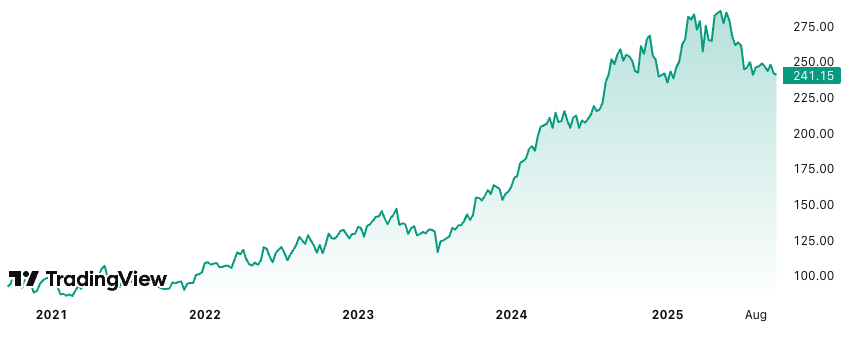
Qiao Ma (Munro Partners)
According to Qiao Ma, there are four key things they look for at Munro Partners to potentially find tomorrow's mega caps: a large market, a loyal customer base, a visionary founder and arguably most importantly, a profitable business model.
It explains the differing fates of Intel and Nvidia and why Qiao Ma remains so bullish on Nvidia (NASDAQ: NVDA).
"The Nvidia of the next decade is still Nvidia."
As she points out, we are only really in Year Three of the AI era, but it will Nvidia that powers the dominant companies of tomorrow.
"I'm reasonably confident these companies will be born using the Nvidia software as the development tool," said Qiao Ma. "I'm reasonably confident that the developers of these companies will use NVIDIA's hardware as the foundation."
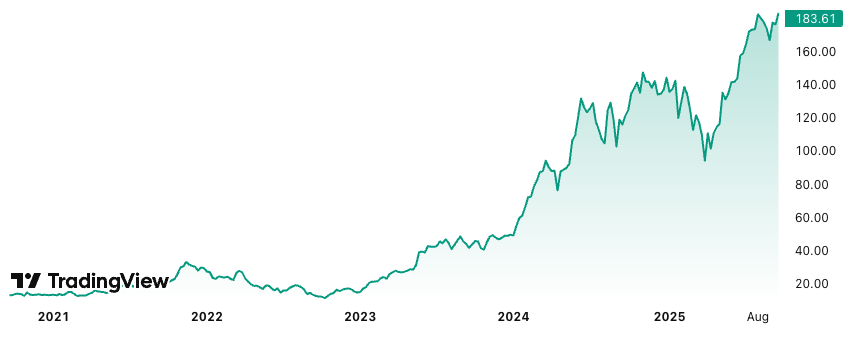
Astera Labs (NASDAQ: ALAB) is her other pick for an under-the-radar disruptor that could make waves over the next decade.
Founded less than 10 years ago to address the issue of computer chip connectivity, Astera offers "scale up" networking instead of "scale out".
AI has changed what we require from chips. What used to be a single chip in a single computer connected to others via ethernet cable has given way to dedicated racks of chips. It's what Astera call the "rack-scale era".
Astera has managed to connect 72 chips in a single rack that acts as one chip.
"This is a ethernet connectivity company that does not make any ethernet cables. It makes chips that help the other AI chips connect with each other."
As chip connectivity grows exponentially, the opportunity for Astera grows exponentially alongside it.
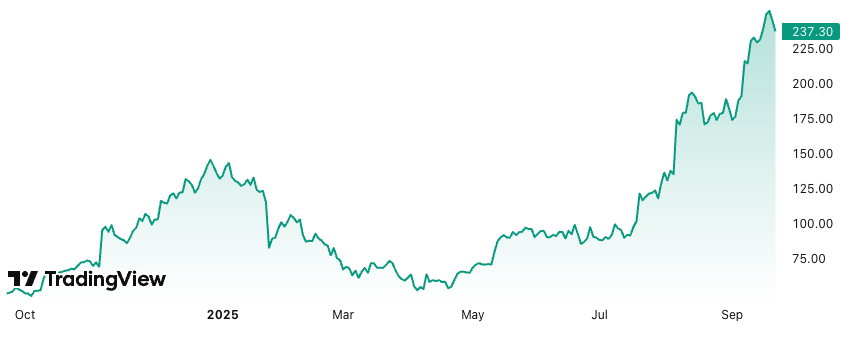
Dr David Allen (Plato Investment Management)
Plato's Dr David Allen says it's easy to get distracted by big promises when trying to find the market leaders of the future.
"There's a type of growth that people naturally gravitate to," says Allen. "It's the exciting stories around the campfire."
But focusing on those "enticing narratives rather than the hard numbers" is the wrong approach, says Dr Allen.
He points out that if you had spent the last 25 years investing in the companies with the highest sell-side growth expectations, you've have virtually nothing left today.
"But the type of growth that is really valuable and underappreciated by markets is companies who have a consistent track record of growing free cashflow organically, not by acquisition, not by financial engineering, not pie in the sky."
"I want to see companies that are actually delivering as well as the hope of future delivery."
Palantir (NASDAQ: PLTR) is a company ticking those boxes at the moment, says Dr Allen.
"This is a company that I think is incredibly exciting because it exists at the intersection of three mega trends."
It has managed to position itself in three of the biggest growth industries of the future: defence, data and AI.
Palantir has "embedded themselves within the US national security apparatus," says Allen. "That's really been referred to as an iPhone moment where they're really enmeshed in there from a non-defence capability."
He highlights the work Palantir did on digitising the UK's National Health Service records. It was a project that had initially begun in 2002 but had seen multiple delays and spiralling costs.
"Palantir came into this archaic siloed system and within a matter of weeks they had plugged into these disparate data streams to produce actionable information and allocate all of these finite precious resources in a very intelligent fashion, very likely saving tens of thousands of lives."
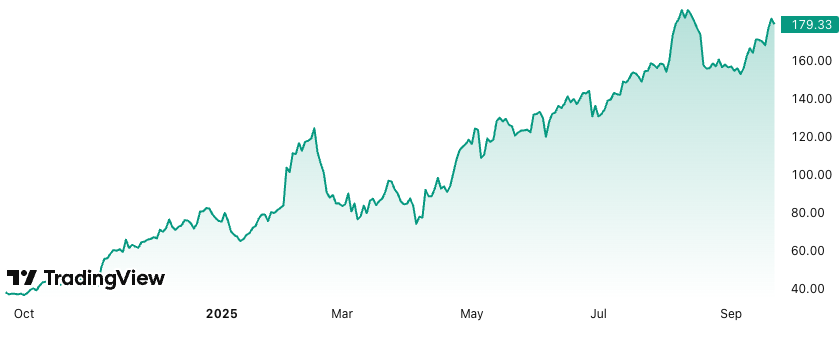
His other pick is Rheinmetall AG (ETR: RHM), the German defence company that is at the heart of Europe's land defence sector.
It's the stock best positioned to benefit from what Dr Allen sees as the coming decade's big trend: European defence spending.
"[Europe] really needs to pull up their socks and invest in their own domestic reliable capability. And that just doesn't exist without this company."
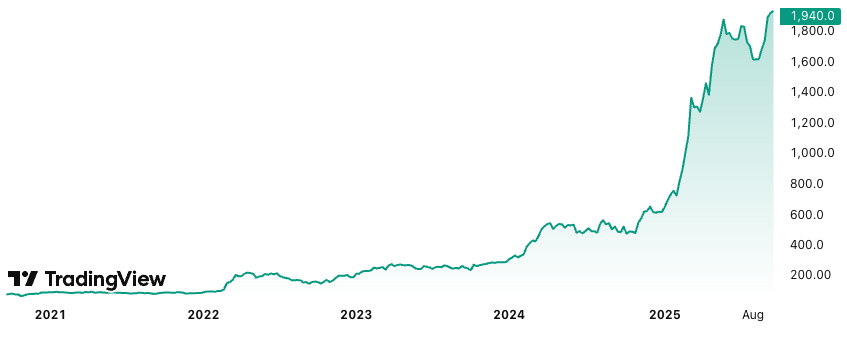
4 topics
4 stocks mentioned
3 contributors mentioned


